↓ Click then check your email in a few minutes! ↓
Workshop Now Available!
“Have You Forgotten What It’s Like to be a Child?
We’ve all forgotten what it’s like to be a child. And because of this, we get frustrated when our students don’t learn quickly, practice faithfully, remember the note names, or memorize their recital piece soon enough! We buy programs, books, and incentives that we think will help, but are not really effective because we don’t understand the underlying issues.
I’ve struggled through this kind of frustration when I tried writing elementary music years ago. That motivated me to get into the minds of kids to see how they think, how they process, and what they love so that I could be a better composer and teacher. All that research and case study can make a huge difference in how YOU teach too!
When you understand especially these 5 characteristics that I’ll present in the upcoming workshop, you will feel excited and equipped to teach (and even compose) much more effectively!
Brilliant ideas! This presentation is worth coming back to more than once.
This is NOT a webinar where you have to show up at just the right time with just the right device and then panic when you can’t hear! This is a professionally recorded workshop for ALL music teachers (not just piano) that you can watch in the privacy of your home at a time that is right for you for several months!
How Piano Students Learn New Information

The video above teaches you a “bonus characteristic” that is not included in the workshop, but gives you a taste of the kind of information that you are going to receive if you purchase the online workshop. How do piano students learn new information? When we understand this, we can adjust our teaching strategies to help them:
- Learn more efficiently
- Remember what they’ve learned (Even those who can’t seem to remember notes week after week)
- Apply what they’ve learned to new situations
- Advance more quickly
Watch the video above! I’ll tell you more about how not only piano students learn new information, but have WE as adults learn new information as well.
Here’s Another [Embarrasing] Example from My Life
As a matter of fact, I’ll go ahead and give you another example of what I talk about here (I don’t actually talk about this in the video but you’ll need to watch the video to get the full lesson).

This year for Christmas, I asked for a Ukulele. My hands are too small for guitar and I needed something easy to learn. My husband gave me one and soon after the wrapping paper was put up, I started to tune it. After that, I tried to play a few of the chords and tunes that they had in the intro book, but something just didn’t seem right. I was really frustrated that my ukulele didn’t sound like all the others I had heard.
Fast forward 2 nights when we were at a Christmas gathering with extended family. I was chatting with my 2nd cousin who was 16 and has learned a lot of instruments by ear, including the ukulele. I don’t remember exactly what he said, but I remember my system being shocked by something and I said, “Wait! What?!?!”
“Are you saying that fourth string on the ukulele is actually higher pitched than the 3rd string? So, it’s like this?”
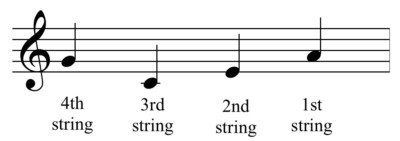
I Had Learned Exactly The Way Piano Students Learn New Information!
What had I done? I had “learned” exactly the way piano students learn new information! I related what was new to something I already was familiar with – the piano. This is how I had tuned it of course:
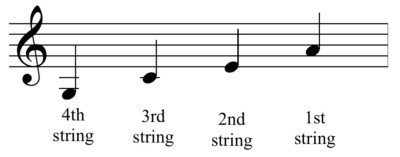
And because I was teaching myself, I was quite wrong! Now, I know there are different ways of tuning a ukulele, but that’s not the point.
The point is exactly what I talk about in the video (definitely watch it because there’s much more there than here): How piano students learn new information that you teach them is by relating the new information to something they already know. And frequently they can’t do this by themselves.
We Have to Help Them! Download the Help Here:
Watch the video to learn more and hear a beautiful example of how another teacher did this. Then download this FREE resource that will:
- Help you get to know what your students love and are familiar with
- Give you ideas on how to relate musical concepts to what kids love! (There are pages of ideas from teachers all around the world!)
↓ Click then check your email in a few minutes! ↓
Resources mentioned in the video:
- Melissa Willis – the V7 chord reference
- My First Piano Adventures – the cat reference
- Leila Viss – the shoes and intervals reference
- Diane Hidy – the ladybug hand position reference
- Piano Safari – the animal piano technique reference

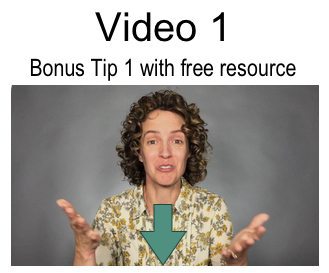
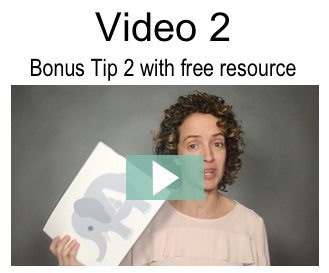
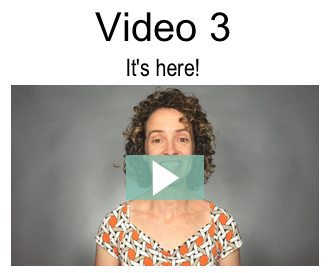
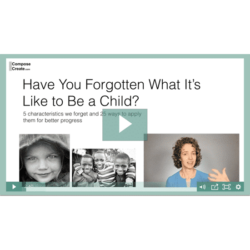
Wow! Your recent video about relating music concepts to familiar concepts was just what I needed as I begin another year of piano teaching. An answer to prayer! Can’t wait to get started. Thanks!
That’s wonderful to hear, Patti! Energizing you for the teaching year is just what I wanted to do! Can’t wait to show the rest!
I absolutely love this. I’m a bit of a memory freak, love reading and writing about how we can use it in learning and teaching better. Relating the information we give students to things they already know is amazing advice, and I need to do more of it.
It gives a good case to getting to know what your students like to do outside of lessons. That way we can teach better in the lessons by speaking their language.
Upon reading your story about receiving a ukulele I was struggling a bit to understand what you meant by “the fourth string being tuned higher than the 3rd”. Then as I saw the notes on the staff and sight sang them I heard a voice in my head sing “My dog has fleas” to those four notes. If you had asked me if I knew how to tune a ukulele by ear I would have said that I didn’t but your story and seeing the notes on the staff awakened a long buried memory of learning to tune the ukulele.. Now I have a “tune” for hearing a descending perfect 5th, an ascending Major 3rd and ascending Perfect 4th! Works for me but probably not for anyone else! Then I r read your story and only then could understand what you meant by relating the tuning to the piano. Memory is such an amazing and delightful tool and so individualized!
Hi Heather,
That’s so fascinating! Isn’t it amazing how complex we all are? Even when we do understand basic things about human nature, there is tons more information to know! Thanks for sharing your story about how you related to my story…definitely gives me something to think about!
SO excited for this – not only to freshen up my own teaching skills, but to have my Kindermusik staff watch it with me as well. Thanks, Wendy, as always!